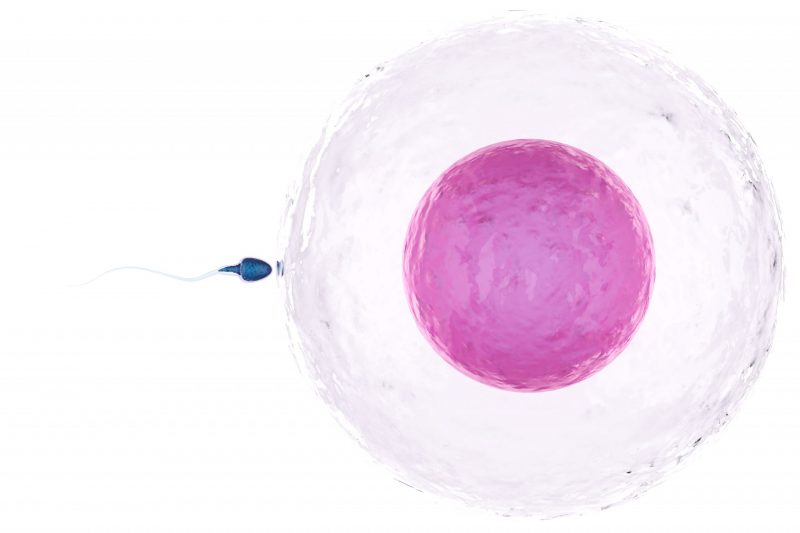Donor eggs and IVF can make it possible for an infertile woman to conceive. They are also an alternative for male same-sex couples who want to have a child.

Let’s look at factors that may lead you to consider donor eggs.
Premature Ovarian Failure and Poor Egg Quality
Originally, donor eggs were used by women with premature ovarian failure (POF), or menopause occurring before age 40, according to RESOLVE, the National Infertility Association. At menopause, your ovaries stop producing eggs and your menstrual periods stop permanently. It’s unusual for this to happen before age 40. Only about 1 percent of women are affected by this. There are a number of different causes and treatments for POF. Sometimes women under 40 will still produce eggs but the eggs are of poor quality.If a poor quality egg is fertilized it can’t grow into a healthy embryo.
Women Over 40
Fertility declines sharply in women over age 40, largely due to aging of the eggs. Sometimes this happens to women under 40 as well although they have not gone through menopause yet. This is the major reason women use donor eggs for IVF, RESOLVE has reported. According to the American Society for Reproductive Medicine (ASRM), the single most important factor in predicting the success of IVF with her own eggs is the age of the female partner. IVF over 40 can be highly successful if donor eggs are used and the egg donor is young, under age 33.
Cancer Treatment
Women whose ovaries have been removed or who have had cancer treatments including radiation and chemotherapy may have ovarian failure; they are unable to produce eggs. Donor eggs may make it possible for a woman to bear a child after cancer treatment if her uterus is intact.
Genetic Disease or Poor Quality Embryos
If a woman knows she is carrying a serious genetic disease she may decide to use donor eggs so she can be more certain to deliver a child without the disease. Another situation which causes couples to decide on donor eggs is having had poor quality embryos during IVF cycles. “Poor quality” means the embryos don’t implant or don’t develop, so the cycle fails.
Male Same-Sex Couples
Donor eggs and a gestational carrier (a woman with no genetic link to the baby she will carry) are an alternative for male partners who want to have a child. Some states have laws about gestational carriers and surrogacy (the woman who carries the baby provides the eggs, so she is the genetic mother.) If you are considering this you should consult a lawyer with reproductive law experience.
The Emotional Side of Donor Eggs
For a woman, using donor eggs means knowing that the child she bears will not carry her genes. This can be a sad feeling, a feeling of loss. Many women find, however, that carrying and bearing a child with their male partner is important enough to them to use donor eggs, while still getting tremendous satisfaction out of nourishing and growing the baby through to birth.
For male couples, donor eggs and gestational carriers enables them to have a family without the potential legal complications of surrogacy. Again, this varies from state to state, and you should consult a reproductive lawyer before you begin the process.
Finding an Egg Donor
How do you find an egg donor? In some cases a woman will have a family member who is willing to donate and has healthy eggs. However, it’s more usual to get your egg donor through a fertility clinic. Most fertility clinics have egg donation programs. Egg donation programs are anonymous, so the clinic can’t tell you much more than donor’s height and weight, hair color and eye color, race, blood type, age and duration of formal education. The clinic will also give you as much family medical history as they know, and the donor is screened for any health issues before acceptance as a donor. The more specific your requirements are, the longer it will take to find a donor.Another source of eggs is a donor agency. Many fertility clinics work with donor agencies as well as anonymous donors and their own donation program. Donor agencies may have a wide range of ethnic groups and races in their donor databases. Some donor agencies permit you to view photos of donors if you wish.In recent years the technology of egg freezing has improved enough that frozen egg banks have become available. One of the benefits of frozen eggs is easier timing and coordination (and therefore, less cost) of your IVF cycle because the eggs have already been retrieved. Depending on your requirements, there may be no waiting time for you to select the donor of your choice. The success rate of IVF with frozen eggs is still being studied.
In Vitro Fertilization Cost With Donor Eggs
The couple who will use the eggs bear the cost of the donor’s treatment. The cost of the donor and her treatment are additional to the cost of IVF for the couple undergoing treatment. Use of a gestational carrier also involves additional costs. The cost of IVF with donor eggs will vary from clinic to clinic and state to state. Typically, the cost associated with recruitment of donor eggs ranges from $5,000 to $10,000 plus the cost of screening and compliance with FDA regulations regarding donors, fertility drugs for the donor and the cost of fertility drugs and IVF for the recipient. Some fertility clinics offer shared donor programs. Two or more recipients can share the eggs from a single donor, lowering the cost to each recipient.
 Let’s look at factors that may lead you to consider donor eggs.
Let’s look at factors that may lead you to consider donor eggs. Let’s look at factors that may lead you to consider donor eggs.
Let’s look at factors that may lead you to consider donor eggs. Let’s look at factors that may lead you to consider donor eggs.
Let’s look at factors that may lead you to consider donor eggs.


